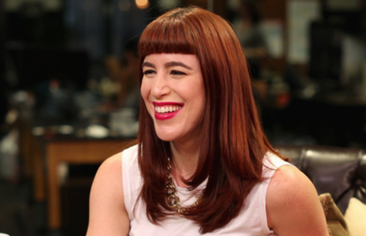Non-Binary People Break Down What the Term Really Means

By:
Residents of Oregon and Washington, D.C. no longer have to identify as either "male” or “female” on their driver’s license. In June, both jurisdictions added a third gender option to their identification cards: an “X” for those who identify as neither. The additional ID options could signal a tipping point for those who identify as non-binary, but while transgender people have gained mainstream visibility, many people still don’t understand what it means to reject gender binary altogether.
While many now understand what it means to transition from one side of the gender binary to the other, non-binary people don’t identify as either a man or a woman. “A non-binary person is someone whose gender falls in-between or outside of the traditional binary of male and female,” Ariel Mahler, a filmmaker and activist, told ATTN:. “For non-binary people, that duality does not apply to our lived experience of who we are,” they added. Non-binary people may use the gender neutral pronouns they and them, or others such as ze and zim or cze and hir.
What It Means To Be Non-Binary
Nina Kossoff came to identify as non-binary because neither man nor woman felt like the right label. Kossoff wasn’t seen as a feminine woman, but they didn’t identify as a butch one, either. “Man” also didn’t feel right. “Being non-binary, for me, means not identifying as a man or a woman, or necessarily embodying what is construed as traditionally 'masculine' or 'feminine,'" they told ATTN:.
“Non-binary” can serve as both an umbrella term or as an identity on its own. It can overlap with other labels that eschew the gender binary, like genderqueer and androgynous, as well as transgender. “I didn’t understand this when I was first transitioning because we didn’t have the vocabulary to explain it,” Devin-Norelle, a trans activist, told ATTN:. “When we finally had the language for it, I felt like a little bit of both, but on some days neither."
For author and producer Jacob Tobia, being non-binary is all about what feels right for the individual. “Some people want to treat gender non-binary and genderqueer like a science, but they’re much more like poetry,” they told ATTN:. That instinct can lead to the assumption that non-binary people are going through a phase. “People look at me and ask, ‘okay, when are you going to transition?’ The idea that non-binary people haven’t made up their mind is a real place of stigma."
Given that the gender binary is so deeply ingrained in Western society, non-binary people are forced to choose between spaces for men or women in both their private and public lives. Growing up in Texas, artist and performer So Brown faced “drama” over their family’s desire to impose a gender identity. “Sometimes they want to figure it out. ‘Is it going to be blue or is it going to be pink?'” Brown told ATTN:. Now, as states introduce so-called “bathroom bills” that dictate which restrooms transgender people can use, non-binary people find themselves subject to further discrimination. “The most common question I get is, 'Which bathroom do you use?' Seriously.”
The Third Gender Option Is A Big Step Forward
The addition of the "X" to IDs means that non-binary people are recognized by the government, which is a critical step to gaining more societal acceptance. “What it says is that your option to not be identified as one or the other is state approved,” Tobia said. This could lead to more education for officers and agencies who interact with non-binary people. “It sends a strong message about how it’s okay or not to treat trans people,” they added.
On a practical level, having a third gender option on an ID means that non-binary people might not face traumatic encounters where they're misgendered.
Still, some activists are hoping to remove gender from IDs altogether, and fear that identifying people as non-binary could subject them to more discrimination. In the meantime, though, the "X" is a game changer, according to non-binary performer Robin Renee. “I think it’s like affirmation,” they told ATTN:. “It helps people feel more comfortable in their own bodies and their own lives."
